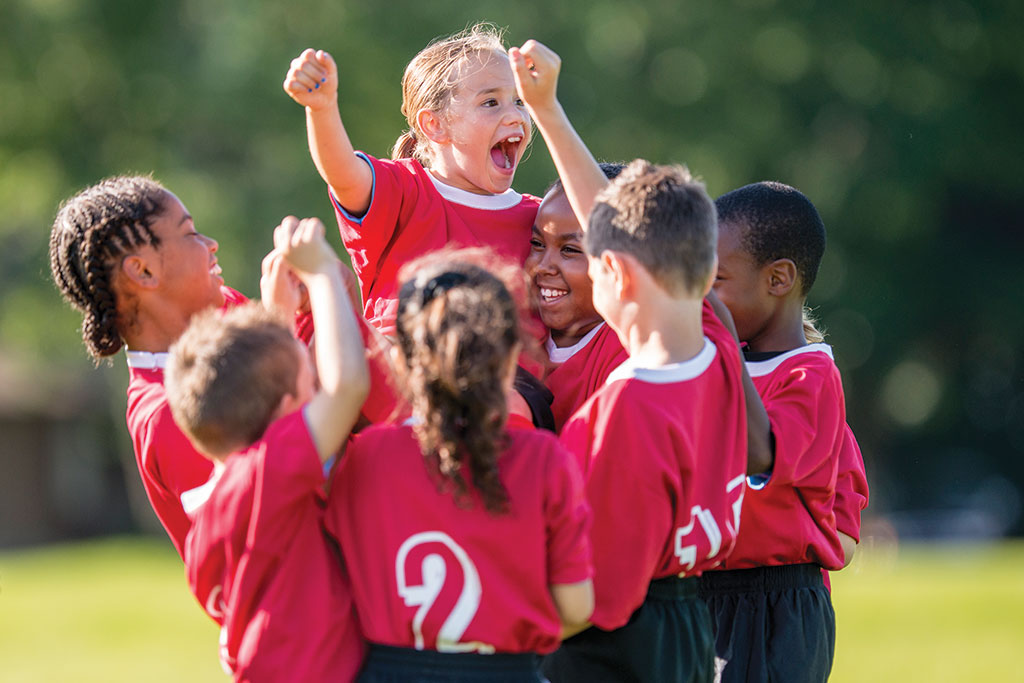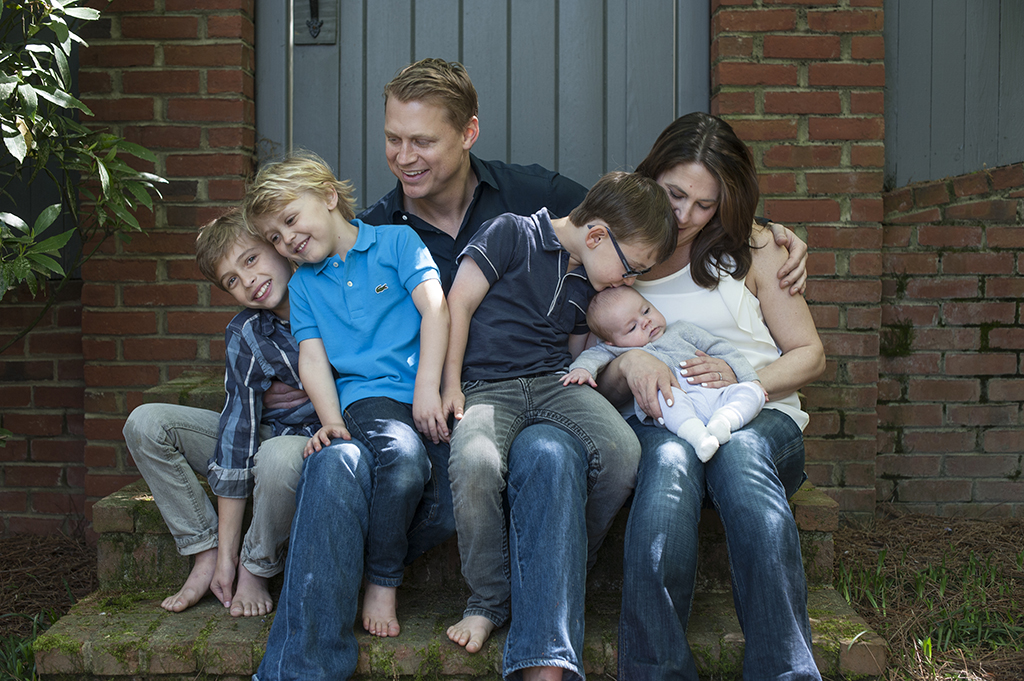How to Raise a Good Sport

Encouraging kids to become members of a team can help them constructively channel their energy and creativity, while learning about sportsmanship first-hand. Kids can learn new things about themselves through participation in sports, performing arts, robotics, debate and other team pursuits.
A team is composed of individuals who temporarily release self-interest to focus their energy in pursuit of a goal they could not achieve on their own. Sportsmanship is a word that describes players on any type of team who participate with character and integrity.
Teamwork has never been more important than it is today. Sports teams rely on it, and so do schools, businesses, towns, states, countries and international partnerships. Groups of every type can benefit from better teamwork among members.
If your child gets involved in a team effort, the experience will likely challenge and stretch everyone involved. Keep these teamwork tips in mind and your family will have a better experience.
Table of Contents
Commit Wisely
Join teams pursuing goals your child is passionate about. It’s great to be good at more than one thing, but resist the urge to over-commit to too many teams.
Communicate Consistently
Conflicts, illnesses and field trips are bound to happen. Try to manage expectations by communicating schedule conflicts to coaches as early as you can.
Get in the Spirit
You have heard that attitude is everything, and nowhere is this saying more relevant than once your child becomes a team member. If you want your child to be a positive contributor, have regular conversations with him about how fortunate he is to be part of such an awesome group.
Be an Eager Learner
Coaches love engaged, enthusiastic players. Assume your child, no matter how capable, has not yet mastered the entire skill set. If your child does not have more to learn, maybe it’s time to graduate from the team.
Contribute your Best
We need to ditch the idea that some people are natural born players and others are not. Anyone can contribute something to a team if he follows his innate instinct to be generous. Discuss giving whole-heartedly and brown-nosing with your kids so they understand the difference.
Stay Open to Constructive Criticism
Part of being on a team is responding to criticism. Feedback will not likely be given perfectly every time. Members need to learn to take what is helpful in feedback and try to apply it to the best of their ability without pushback.
Bounce Back from Disappointments
Sitting the bench, getting cast as the understudy, making JV instead of varsity – kids need help finding the value in experiences that don’t thrust them immediately into a spotlight.
Cultivate Courtesy
Sometimes you have to say, “Good game,” when you don’t feel that way. Coaches expect kids to park their pouting and behave with humility. Increase the odds your kids will be on their best behavior by being impeccable in your behavior, too. Cultivate your family’s reputation as team players and you will raise good sports.
Take Confusion to the Top
Misunderstanding? Miscommunication? Miffed for any reason? Wait 24 hours before you fire off that email. Taking out your anger or frustration on the coach or administrators hurts your child’s reputation and yours. So compose yourself and ask for help in understanding the situation before you demand heads on a platter.
Encourage New Members
When you and your child became part of the team, you looked to others to learn the ropes. Once your rookie becomes a veteran, it’s your turn to welcome new members and families. Stick out your hand, introduce yourself and offer whatever assistance you can. There is only one rule: keep your comments constructive. Your little team member and fellow families will thank you for rising above gossip and slander.
Be a Good Sport
If you want to raise a good sport, don’t …
- Be two-faced. Showing one face in public and then talking smack about the coach or teammates at home is confusing to kids. So don’t do it.
- Hover. Your child is on the team; you are not. Sometime the coach needs you around but most of the time he does not. Parents play a supporting role and can ask for clarification as to what helpful looks like whenever unsure.
- Stroke your child’s ego. Let your child strengthen his own ego through participating fully. You don’t need to make a child feel superior to others. In fact, over-praising will undermine a player’s natural desire to progress.
- Grouse. Appreciating the coach, the administrators and the teammates will lead to family optimism. Kvetching, complaining and grumbling will only inspire cynicism. Choose wisely.
- Believe your child is the only one who matters. How many members of the extended team are there? How many coaches? How many are there on the support staff? How many parent volunteers? Show appreciation and support for everyone involved.
- Merely focus on winning. Teams win some and lose some. Your child will have to learn to deal with emotions related to both extremes. Don’t be surprised if you are balancing cockiness as much as discouragement because kids may not have the ability to handle emotional highs and lows without guidance.
- Overstay your child’s enthusiasm. When the thrill of being on the team is gone, it’s time to move on. Don’t make the mistake of staying on a team when your child is no longer interested. Leave graciously when it’s a natural time to choose differently.
– Christina Katz







